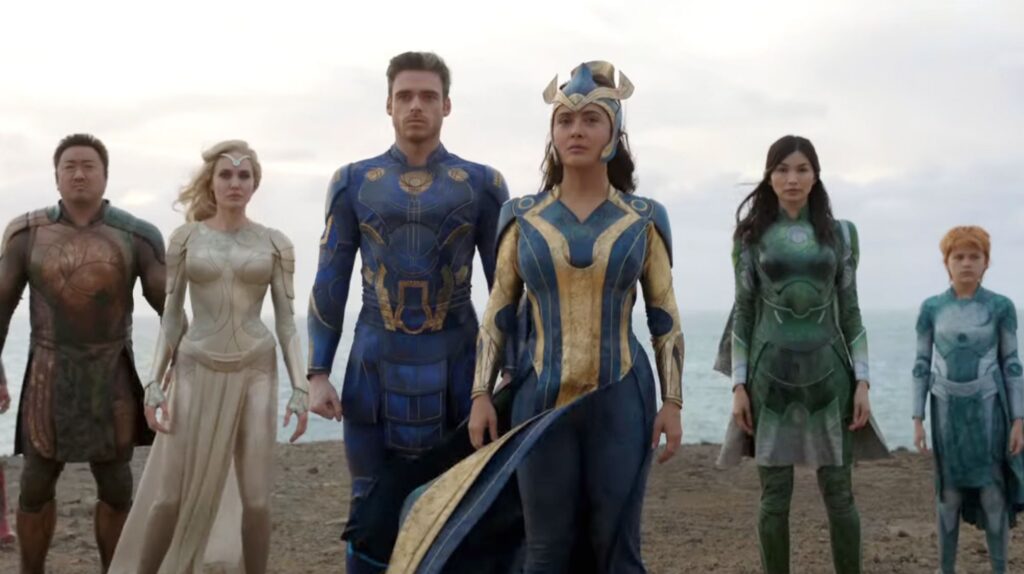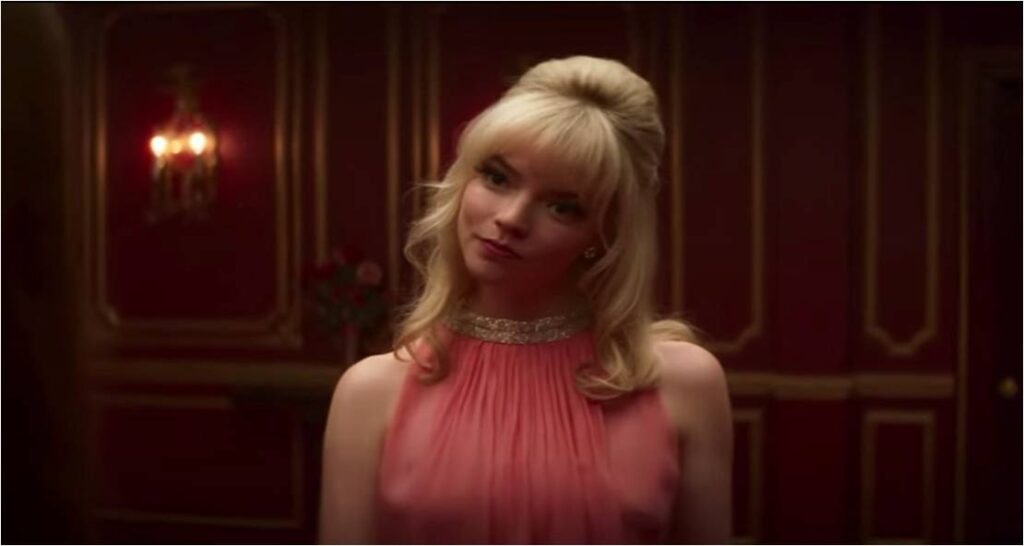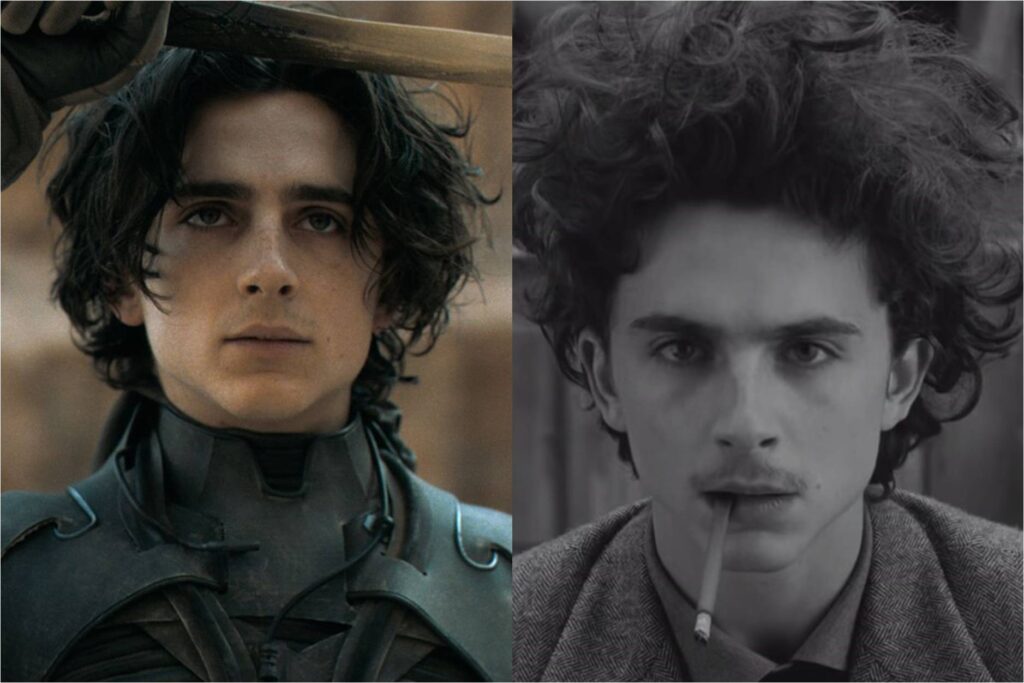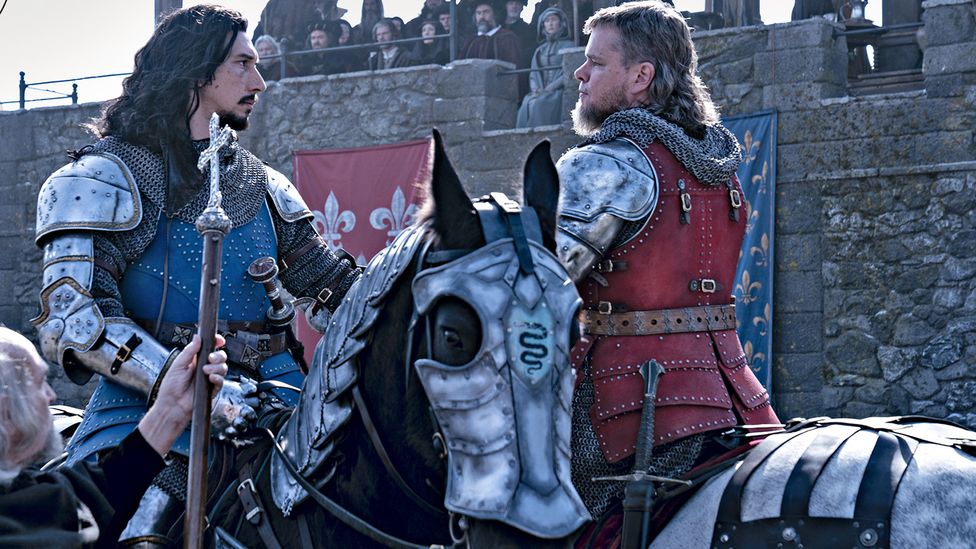Belfast: The Troubles of Growing Up, Like and Unlike Everyone Else
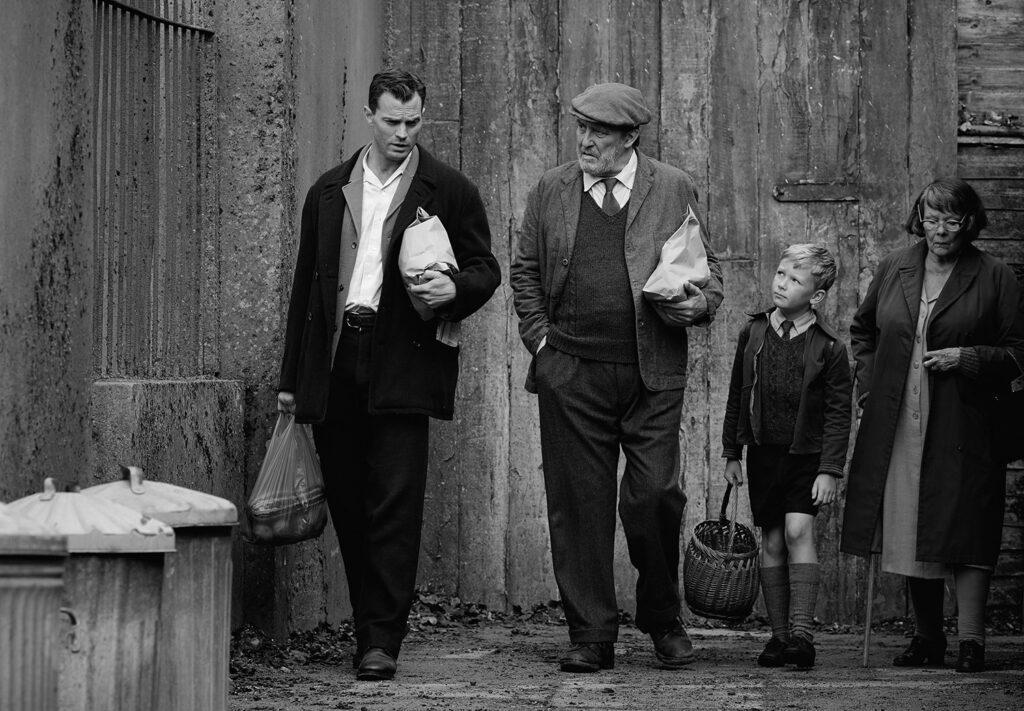
The opening scene of Belfast, the new film from Kenneth Branagh, announces the movie as both a narrow slice-of-life comedy and a more ambitious historical drama. Following some trivial narration from Judi Dench, the wan colors shift into crisp black-and-white, and the camera glides along a street in Northern Ireland, revealing a homey, intimate neighborhood. (A title card informs us that the date is August 1969.) The mood is relaxed and cheerful; children are kicking a ball around, adults are yammering idly, and everyone seems to know everybody’s name. Yet as nine-year-old Buddy (newcomer Jude Hill) traverses the road and spars good-naturedly with some shopkeepers, this peaceful idyll is shattered by the sudden arrival of armed hooligans. As they snarl threats and smash windows, the camera pivots around Buddy, spinning faster and faster, underlining his vulnerability and panic. What was once bliss has been replaced by terror.
Roughly based on Branagh’s own childhood, Belfast is a noble, enjoyable, not entirely successful attempt to document both sides of this formative coin. It seeks to frame the traditional hallmarks of the coming-of-age picture—the fledgling romances, the quixotically striving parents, the classroom grievances, the petty illegalities—against the backdrop of social unrest and religious conflict. That it struggles to fuse these disparate halves into a cohesive whole is due less to tonal inconsistency than cinematic execution, or maybe priorities. Over the course of a long and uneven career, Branagh has proved himself capable of working on a large scale—I remain a fan of his straitlaced Hamlet, while the operatic thriller Dead Again is arguably his best work—but here, whether because of lack of interest or inadequate filmmaking chops, he fails to invest the movie’s ostensibly sweeping commentary with much energy or clarity. He’s more committed to evoking the particular pleasures and predicaments of his youth with loving detail and misty-eyed nostalgia. Read More

